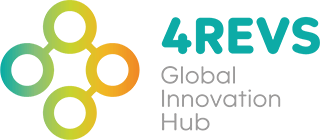4Revsピックアップ
2023年6月26日
プラスチックに関する新しい研究(3件)

【主な要点】
1. 各国政府は、2024年末までに最終決定される見込みの、プラスチック問題への取り組み方に関する法的拘束力のある協定を交渉している。現在、このプロセスにインプットを提供するために、いくつかの研究が行われている。2023年2月にEUが公表した研究の1つは、ナノプラスチック(細胞膜を貫通する可能性を持つ非常に小さなプラスチック片)に関する知見をレビューするものである。ナノプラスチックのリスクと影響は、現在、科学者によって激しく研究されており、この研究は各国政府の規制当局によって注視されている。
2. 科学雑誌「Annals of Global Health」に掲載されたミンデロー・モナコ委員会のプラスチックと人間の健康に関する報告書は、プラスチックがライフサイクル全体で引き起こす人間の健康、環境、経済への影響を評価したものである。この研究では、プラスチックに含まれる何千もの化学物質が重大な害を及ぼしていることを発見している。著者らは、プラスチックの世界的な生産量に上限を設け、これらの材料の化学組成をより厳格に規制することを推奨している。
3. エコノミスト・インパクトと日本財団のイニシアチブであるBack to Blueの研究では、G20諸国における3つの政策(不要な使い捨てプラスチックの禁止、拡大生産者責任、バージン樹脂への課税)の影響をモデル化している。その結果、これらの政策を組み合わせても、世界のプラスチック消費を抑制し、海洋プラスチック汚染に効果的に取り組むには不十分であることが判明した。
補足:
大胆かつ包括的な一連の政策変更が国連で合意されない限り、世界はプラスチック廃棄物に溺れ続けるだろう。
プラスチック消費のピークを実現するためには、政府、石油化学業界、消費財業界、環境保護団体を含む国連条約交渉官によって議論されているスペクトルの中で、最も野心的な政策が必要となる。
参考リンク:
EU Future Brief on nanoplastics: https://op.europa.eu/en/publication-detail/-/publication/a9088790-ace5-11ed-8912-01aa75ed71a1/language-en/format-PDF/source-280658643
The Minderoo-Monaco Commission study: https://annalsofglobalhealth.org/articles/10.5334/aogh.4056/
Back to Blue study: https://backtoblueinitiative.com/plastics-consumption/
Jun 26, 2023
New research on plastics (3 studies/reports)
#circular#ocean-plastics-pollution-problem#ecosystem
Main Points
1. Governments are negotiating a legally binding agreement on how to tackle plastics issues, expected to be finalised by the end of 2024. Several studies are now conducted to provide input to this process. One such study, published by the EU in February 2023, reviews the knowledge on nanoplastics (very small plastic fragments with the potential to penetrate cell membranes). The risks and impacts of nanoplastics are now intensely studied by scientists and this research is closely followed by government regulators.
2. A report by the Minderoo-Monaco Commission on Plastics and Human Health, published in the scientific journal Annals of Global Health, assesses the human health, environmental, and economic impacts caused by plastics across the lifecycle. The study finds that the thousands of chemicals in plastics are causing significant harm. The authors recommend a cap on the global production of plastics and stricter regulation of the chemical composition of these materials.
3. A study by Back to Blue, an initiative of Economist Impact and The Nippon Foundation, models the impact of three policies in the G20 countries: bans on unnecessary single-use plastics, extended producer responsibility, and taxes on virgin resins. It finds that even a combination of these policies is insufficient for curbing global plastic consumption and effectively tackling marine plastic pollution.
Text:
The world will continue to drown in plastic waste unless a bold and comprehensive set of policy changes are agreed by the UN. To bring about peak plastic consumption, these policies would need to be at the most ambitious end of the spectrum being debated by UN treaty negotiators, which include governments, the petrochemical and consumer goods industries, and environmental groups.
Links:
EU Future Brief on nanoplastics: https://op.europa.eu/en/publication-detail/-/publication/a9088790-ace5-11ed-8912-01aa75ed71a1/language-en/format-PDF/source-280658643
The Minderoo-Monaco Commission study: https://annalsofglobalhealth.org/articles/10.5334/aogh.4056/
Back to Blue study: https://backtoblueinitiative.com/plastics-consumption/
最新のピックアップ
-
2024年3月8日
Mar 8, 2024
lithium battery; energy transition; recycling; closed loop

-
2024年3月6日
Mar 6, 2024
Tomato Jos: Investment & Impact into Nigeria’s Tomato Industry

-
2024年3月4日
Mar 4, 2024
ネイチャー・ポジティブに資する 投資は、世界全体のわずか 3%に過ぎない
Only 3 per cent of global investments are nature- positive

-
2024年2月3日
Feb 3, 2024
Towards sustainable regenerative food systems

-
2024年1月4日
Jan 4, 2024
Climate adaptation – 150 options for water in agriculture

